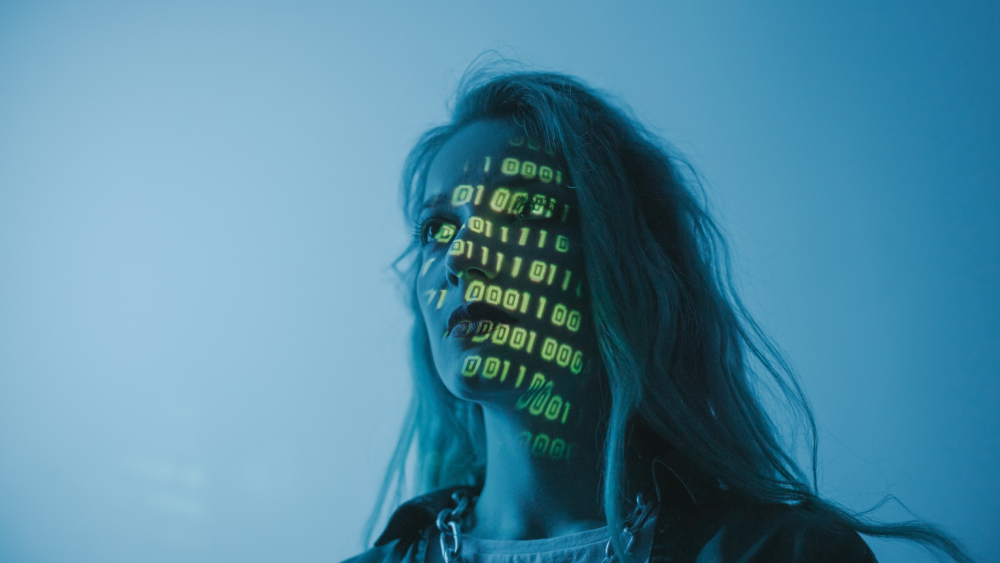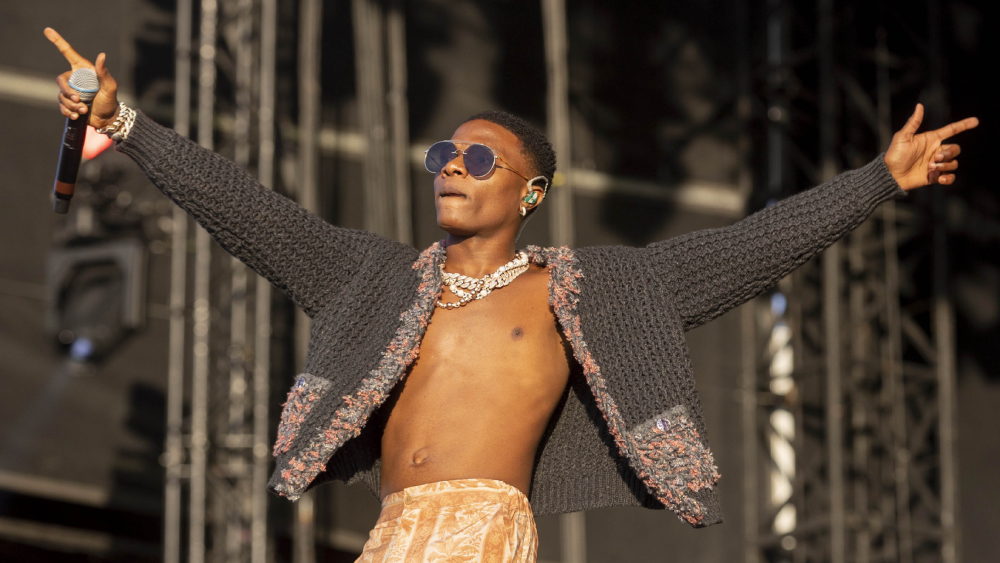In the Terminator movie franchise, it took just a few weeks for the Skynet artificial intelligence computer system to become self-aware and trigger Judgement Day, ultimately leading to the destruction of the human race.
And right now, it feels as if the progress of AI in the real world is moving almost as fast. No one’s talking about it causing nuclear Armageddon just yet, thankfully, but some in the industry are concerned that the technology could potentially terminate the career of many songwriters and musicians.
Once the stuff of dark dystopian future fantasies, AI crash-landed into mainstream consciousness in November last year with the launch of ChatGPT, an AI chatbot that can confidently – if often inaccurately – answer questions on a wide range of topics.
Since then, barely a day has gone by without a significant development in the field: some of them fun (an AI-generated image of the Pope in a massive puffer jacket that fooled the internet!); some more sinister (AI pioneer Geoffrey Hinton warning that the tech’s threat to the planet may be ‘more urgent’ than climate change); and many others concerning music – so often the canary in the coal mine when it comes to technological disruption.
‘If you can then take any human interaction and put it into an AI tool, that’s an awful lot of people who, all of a sudden, are potentially cut off from their business.’
In recent weeks, Heart On My Sleeve – a track with fake Drake/The Weeknd vocals – racked up hundreds of thousands of streams before being pulled from streaming services; David Guetta posted a track with an artificially-generated Eminem feature; and Liam Gallagher declared a so-called ‘lost’ Oasis album by the band Breezer with AI-generated Liam-alike vocals (posted under the name AIsis, which at least shows our future robot overlords have a sense of humour), to be ‘mega’.
Grimes went even further: encouraging people to use her voice on AI songs and launching her own AI vocal generator called Elf.tech. LA-based DJ Kito has already used the platform on a (human-written) hit song, Cold Touch. No wonder Spotify’s Daniel Ek, Warner Music’s Robert Kyncl, Deezer’s Jeronimo Folgueira and Universal Music’s Sir Lucian Grainge – to name but a few – have all recently spoken about the new tech with varying degrees of enthusiasm and caution. The Human Artistry Campaign has been set up to establish fair practices with AI, while even Elon Musk called for a six-month pause in the ‘out of control’ quest for AI advances.
‘We stand on the edge of a precipice in terms of what is about to happen with AI,’ warns Nick Stewart, legendary former A&R man and CEO of TCAT, a platform that hunts down unauthorised uses of copyrighted material online, including tracks using AI. ‘It’s a bad thing but I don’t think it’s suddenly just going to stop. Unfortunately, it’s going to grow and grow.’
There are also potential issues if you’re a songwriter. Last month, TV music composer Hayley Wood told M Magazine about her concerns over broadcasters favouring cheaper AI-generated music over human composers. And PRS for Music’s head of policy and public affairs, Ali Condon, agrees that media composers are ‘the creators most likely to be impacted first’ from the rise of the new tech.
'Musicians have certainly become used to dealing with the challenges posed by technological developments – and history tells us that they will always adapt to and benefit from new technology, as long as the landscape allows them to do so.'
‘Think of the impact production and library music has had on media composers,’ Condon says. ‘If you can then take any human interaction and put it into an AI tool, that’s an awful lot of people who, all of a sudden, are potentially cut off from their business.’
But there are also plenty of AI positives. A recent survey of its users by distribution company Ditto showed that almost 60% of the 1,200 musicians asked already use AI within their music projects, while 47.1% say they would use AI for their songwriting in the future. Only 28.5% of artists said they would never use AI.
That reflects a growing school of thought that artificial intelligence tools could be more of a help to songwriters than a hindrance. Applications and platforms (including Orfium, which recently signed a deal with PRS for Music to extend the collection society’s music licensing to Africa) can use the tech to track music usage and ensure songwriters and composers get paid, while others will help streamline the creative process itself.
One of the growing number of apps hoping to become an essential part of composing life is DAACI, an assistive meta-composition platform that recently joined the prestigious Abbey Road Red incubation programme.
Set up by a group of composers, developed across three decades and operating on the same compositional principles as the human writers that will use it, CEO Rachel Lyske says DAACI offers writers assistance, not non-existence.
‘We’re not trying to replace composers, they are crucial to this whole ecosystem working – it won’t exist without composers,’ she says. ‘It might replace a little bit of their process maybe, so that they can write faster and write more, but it’s not getting rid of them. It’s interpreting what has come from a composer’s brain rather than trying to imitate something that’s come from them – and that’s an important distinction.’
'PRS will do everything it can to make sure we end up with a solution that is as positive for creators as possible.’
Lyske says DAACI will help composers respond to the ever-increasing demand for music in the worlds of film, TV and gaming, and allow them to produce dynamic, personalised soundtracks for new metaverse-type immersive experiences.
‘Musicians, by our very nature, are really quick at responding to things and being creative with what we have available to us,’ she says. ‘There’s always a reaction when you first see something new, but I’d like to think musicians are going to embrace it and drive the power behind this.’
Musicians have certainly become used to dealing with the challenges posed by technological developments – and history tells us that they will always adapt to and benefit from new technology, as long as the landscape allows them to do so.
After a backlash from numerous music trade bodies, the UK government recently rowed back on plans to grant a blanket copyright exception for ‘text and data mining’, but Ali Condon – while agreeing that ‘assistive generative AI could be really productive and helpful for musicians’ – warns that even that fight is far from over.
‘We really need to reinforce the importance of licensing to government and to those AI systems,’ she says. ‘Music isn’t data, it’s not a bunch of numbers to be crunched to find patterns and advance science. It’s human expression.
‘The music industry has a history of creating licensing solutions,’ she adds. ‘We want to work closely with the market to make sure creators aren’t cut out of the value chain. PRS will do everything it can to make sure we end up with a solution that is as positive for creators as possible.’
Even the most sophisticated AI engine needs to be trained on existing human work, meaning those whose art is fed into the system should surely be compensated. There is no AI-specific licence as yet, but wary major labels – who, of course, remember industry revenues being almost halved by online piracy at the start of the century – have already asked streaming services to block access to their catalogues.
‘AI is going to have a big part to play in film, art, photography… It will be impossible to get this genie back into the bottle.’
But they’re also being proactive: Universal Music Group recently signed a ground-breaking deal with AI sound wellness company Endel that will allow artists to ‘create soundscapes for daily activities like sleep, relaxation and focus’. UMG says the partnership will ‘always respect creators’ rights’.
Nick Stewart – whose company was recently commissioned by a major label to audit the extent of AI-generated material around one of their major stars – believes the spate of unapproved superstar soundalike tracks are covered by existing ‘passing off’ laws, although tech sources believe ‘fair use’ or even ‘parody’ exemptions may protect them. As another tech pioneer once said: it's complicated.
‘We want to see a pragmatic and sensible approach taken that keeps creators in the value chain,’ says Ali Condon. ‘We need to carefully think about the things we need to have in place: transparency, auditability and accountability. We need to be able to understand what’s been ingested and what’s then in the output.
‘We should be looking at responsible and ethical AI,’ she adds. ‘It’s not just about inculcating a free rein for AI systems; they have to be responsible actors in the market, because once it’s done, the harm will rapidly accelerate, and you won’t be able to undo it. It needs a united approach.’
‘It’s not just hard,’ muses Nick Stewart of the industry’s attempts to guide technology’s advance in the right direction. ‘AI is going to have a big part to play in film, art, photography… It will be impossible to get this genie back into the bottle.’
But despite that, many remain convinced that even the most advanced systems will never be able to replicate the creative genius of human songwriters and composers.
'With that world of possibilities waiting to be built, AI could yet mean boom rather than doom for the music industry.'
‘There’s lots of AI music out there and some of it is good – but it's not as good,’ stresses Ali Condon, who recommends AI-generated songs be clearly labelled so consumers are aware of what they’re listening to. ‘It’s going to get better quickly, but you won’t necessarily get the nuance you get from a really good songwriter, because you train [AI] to follow patterns. You’re not going to see that original voice, because that’s the whole point of being an original voice: you’re not doing what’s gone before.”
Just like in the Terminator movies, potential alternative timelines are opening up in front of us. Get the balance right between technological advancement and artistic protection and, Rachel Lyske believes, we could all be living in ‘a world full of amazingly personalised music that can enhance and add heightened experiences for everyone – user and composer’.
With that world of possibilities waiting to be built, AI could yet mean boom rather than doom for the music industry. After all, it’s worth remembering that, in the Terminator sequels, Arnold Schwarzenegger’s T-800 actually became the good guy…





